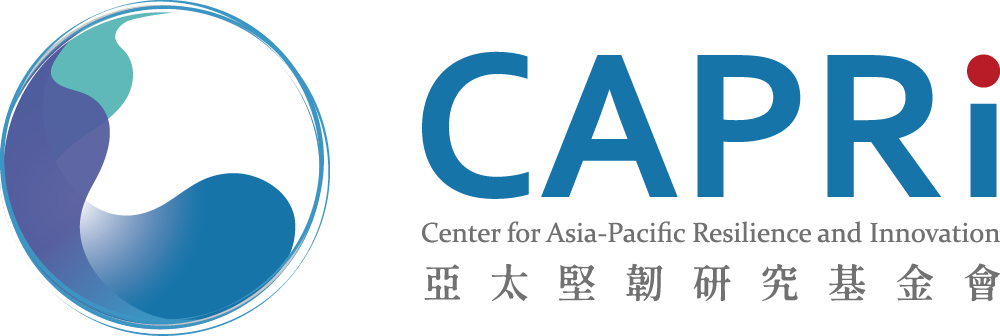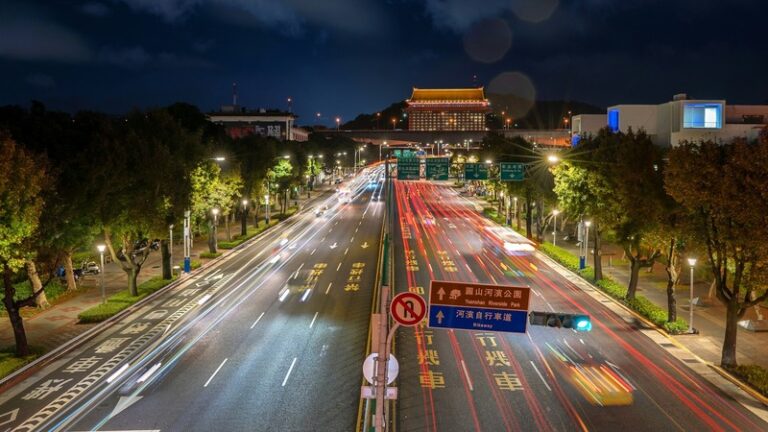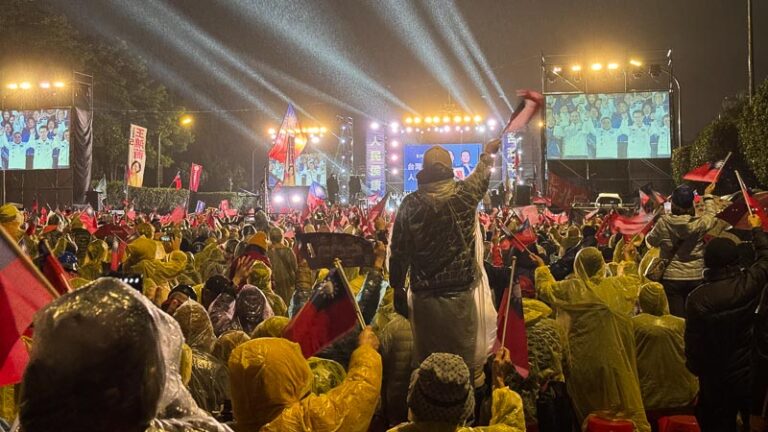Event details | Event recording
March 22, 2023
Thank you CAPRI and the National Taiwan University College of Law for inviting me today. It is an honor to share the stage with distinguished academics and experts, Professor Alicia Garcia Herrero, Professor Yeh, and I’m particularly grateful to Dr. Richard Bush for graciously giving me the opportunity to take part in today’s discussion.
Richard has had a lifetime of impact on Taiwan-US relations, towards the common goal of a more secure and prosperous future. He brings to the table decades of experience, and more importantly, perspective. Readers will find his book, like his remarks today, refreshingly constructive, in the midst of the present political climate.
I see from the turnout today, that many of us crave sound, rational policy debate. Everyone here should be encouraged, by those sitting to your left and right, because we citizens have to take charge of where we go from here.
Richard has issued a challenge to all of us: How do we make democracy continue to work for Taiwan? For a better, more promising future. How do we balance competing priorities?
In the limited time today, I will focus my comments on conscription, which is a key issue affecting Taiwan’s security.
As Richard stated, we face a hard reality: the risk of military conflict is not zero. This is because the CCP wants Taiwan to be part of China. And most people in Taiwan do not want that future, or at least want to decide for ourselves.
Will there be a military conflict? It is the job of pundits to predict the future, but it falls on the rest of us, to make hard choices – and smart choices – in the face of uncertainty.
The question is, how do we reduce that risk, while ensuring Taiwan’s autonomy and freedom?
Much has been made of cross-strait relations during Ma’s administration. Some have suggested that those were safer times for Taiwan. During those years, there was more engagement and interaction at the government level, that should be beyond debate.
But Taiwan’s security was far from better off. Beijing continued to invest in capabilities that would enable it to invade Taiwan, and to keep international intervention at a distance. China’s leadership did not stop building its forces against Taiwan, despite the cross-strait relations.
All the while, Taiwan fell further behind by not prioritizing and investing in our defense.
The danger of assuming that, as long as Taiwan conforms to China’s red lines, then Taiwan will be safe, is that the CCP is constantly shrinking and moving its red lines. More fundamentally, it does not even need red lines as an excuse to behave aggressively, whenever the situation suits its interests. The crackdown on Hong Kong is an example. The militarization of the South China Sea 10 years ago, is another.
So, it is important to engage, because that minimizes misunderstandings, but it cannot come at the expense of being prepared.
I will leave the question of how to constructively engage with China for another time – but it is important to set parameters for dialogue that is in the interest of Taiwan and regional stability.
I hope we can all agree that appeasement is not a sound strategy for national security – and that is certainly a lesson from history. Then, we are left with the only way to reduce the risk of an attack:
To enhance deterrence by “creating effective obstacles to a PLA campaign.” – as Richard noted.
This means having enough well-trained soldiers to resist a PLA invasion. This means having enough well-trained reserves, to augment the armed forces, in case they are needed. This means standing up a territorial defense, a type of Home Guard, to safeguard our cities and critical assets, to work behind the front lines, with first responders and communities; and to disrupt the operations of invading forces if they were to land. And this means preparing civilians to help each other, to survive and endure, and to support the nation’s defense
We have made some progress when it comes to reserves and conscription, but serious challenges remain in both areas.
First, budget.
To train more people, or to provide more training, we require more budget. Richard has laid out the argument for revenue and tax reform. But until that happens, we need to prioritize within a limited budget, and spend on what is truly important, to maximize impact. If initiatives are not fully funded, they will fail.
Second, training.
It is one thing to extend service, it is entirely another to provide better service. Policymakers need to clearly lay out the mission for conscripts and reserves, and demonstrate that not a single day goes wasted, that your service will have meaning. We have not seen this, and we are short on time.
If we allow politics as usual, then we will harm the credibility of government institutions, and significantly set back the ability to implement reforms in the future. But if we tackle these challenges head on, we will make a huge difference in enhancing Taiwan’s security posture.
I lead the Forward Alliance, where we have trained thousands of civilian responders to build a volunteer corps that can mobilize in case of disaster – whether natural or manmade.
I can report that: if we provide meaningful training, if we respect people’s time, the public will come. Not just men, but women too. Not just the young, retirees too. Because at the end of the day, people want to learn how to take care of themselves and their families.
And beyond that, if we can serve our communities, it is a privilege. Because we find meaning in contributing to a cause bigger than ourselves.
We have seen it work in civil society. But it begins by not treating conscripts as free labor, or worse, as PR liabilities to chaperone through the end of their service. It begins by investing in people.
So what to do?
I think national service needs to be transformed, but this should not be assigned to the Ministry of National Defense. It is both unfair to our warfighters and unrealistic given their constraints. Also, we have seen from the business world, the perils of tasking an existing monopoly with a new initiative. These projects tend to fail.
I propose that government agencies outside of the Ministry of National Defense should revamp our Alternate Service program, rebranded as National Service:
Create new categories of service relevant to strengthening society. Missions and training that support first responders, that build a crisis response organization and capability. Create options for citizens who are excited to serve. Create a healthy competition between agencies for resources and manpower.
So conscription is not just about the defense. It needs to be about citizenship and service.
Done right, national service has the potential to build solidarity – and to strengthen our democracy.
As we embark on the once-every-four-year exercise of electing a national leader, our commander-in-chief, or as I prefer, “public servant in chief. ” – now is an opportunity to confront these difficult choices – together.



